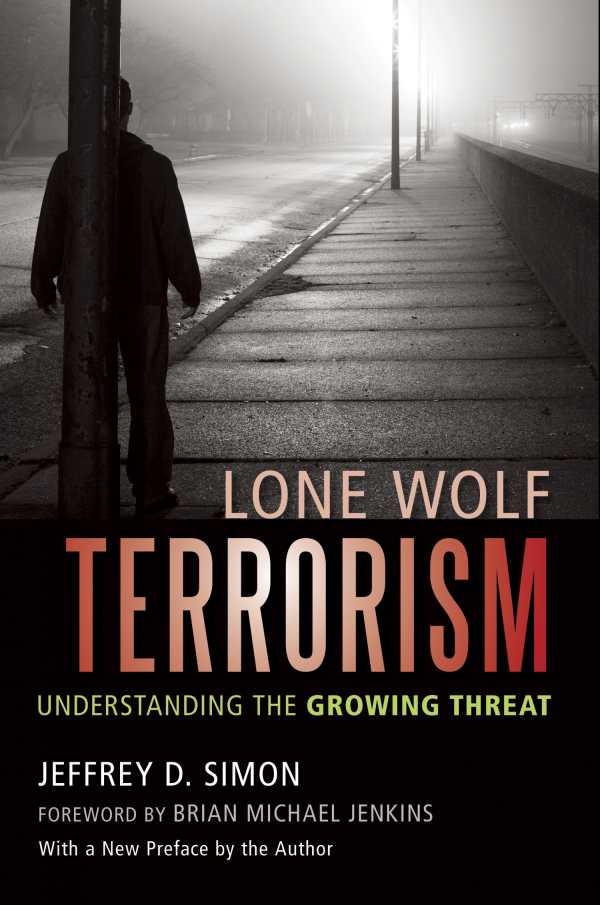Lone Wolf Terrorism
Understanding the Growing Threat
This important work offers much for a general, concerned audience, as well as for specialists charged with combating terrorism.
Jeffrey Simon’s chilling and compelling account of the rise of lone-wolf terrorism proves prescient, as the recent shooting rampage in Orlando demonstrates. Simon did not specifically predict the Orlando massacre, but he does make a strong case for its inevitably—and for potential future single acts of terrorism. Simon’s rerelease of Lone Wolf Terrorism comes updated with a new preface.
The book identifies five types of lone-wolf terrorists, and by no means do they all take their marching orders from ISIS and al-Qaeda. These are secular terrorists who strike for political reasons; religious terrorists, who kill in the name of gods; single-issue terrorists, who back or attack such causes as the environment or abortion; criminal terrorists, who terrorize for financial gain; and idiosyncratic terrorists, who are driven by mental illnesses.
Simon is most effective, although somewhat repetitive, in describing how lone wolves creatively exploit the Internet and technology to develop and carry out attacks. Often-gripping accounts show how lone wolves are lethal and difficult to apprehend, from Timothy McVeigh to “Unabomber” Theodore Kaczynski. The author’s analysis of Bruce Ivins, who was the mastermind of the 2001 anthrax attack, is especially revealing. Five people died from anthrax poisoning before Ivins, suffereing from mental illness, took his own life.
Especially vital are Simon’s projections about the future state of lone-wolf terrorism. The world has entered a new wave of the most lethal terrorism, he shows, one that appeals to lone wolves because of its reliance on the Internet. More advanced weapons, including those of bioterrorism and cyberterrorism, make the situation more tenuous. Among the author’s recommendations for confronting these evils is the increased use of biometrics, which, through studying physiological or behavioral characteristics, could deter attacks.
The dangers that Jeffrey Simon identifies in Lone Wolf Terrorism bear repeating. This important work offers much for a general, concerned audience, as well as for specialists charged with combating terrorism in the United States and throughout the interconnected world.
Reviewed by
Karl Helicher
Disclosure: This article is not an endorsement, but a review. The publisher of this book provided free copies of the book to have their book reviewed by a professional reviewer. No fee was paid by the publisher for this review. Foreword Reviews only recommends books that we love. Foreword Magazine, Inc. is disclosing this in accordance with the Federal Trade Commission’s 16 CFR, Part 255.

